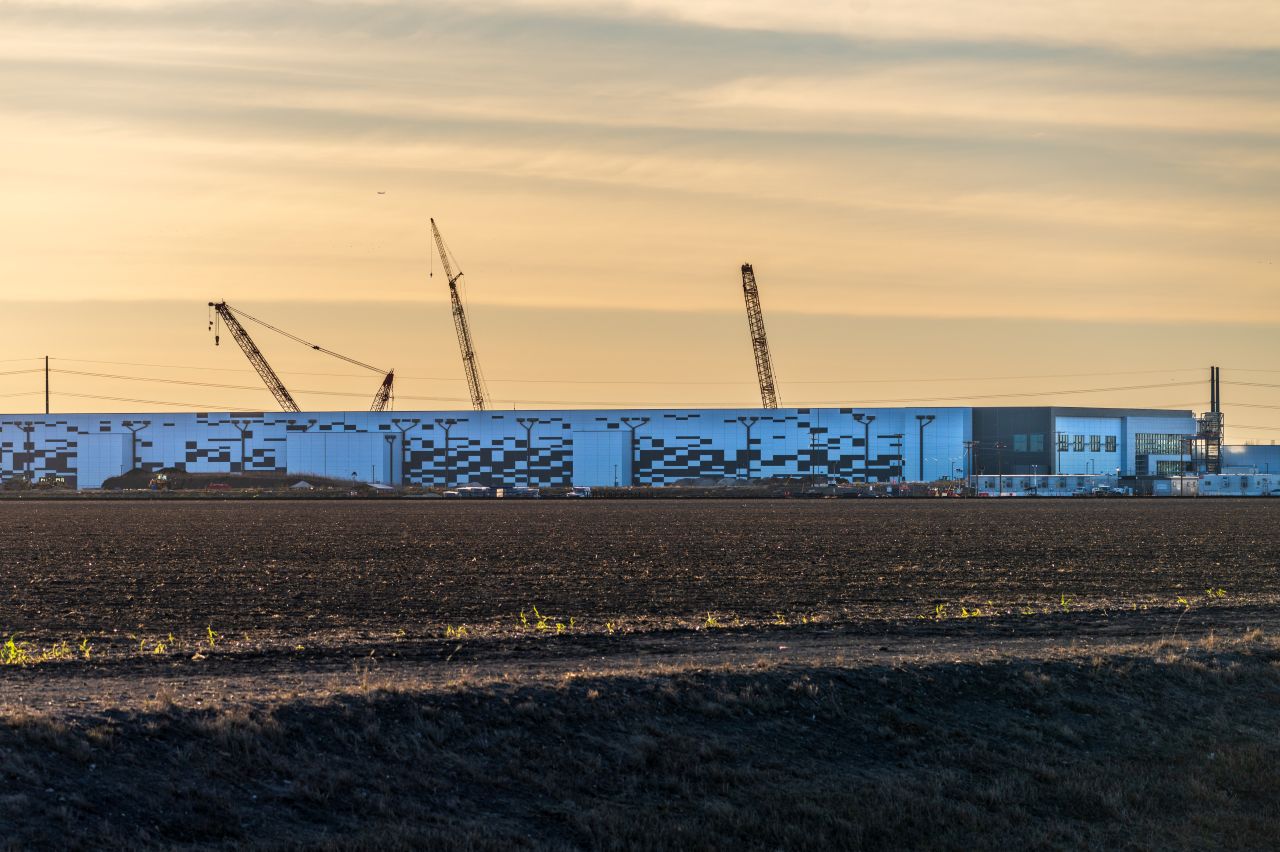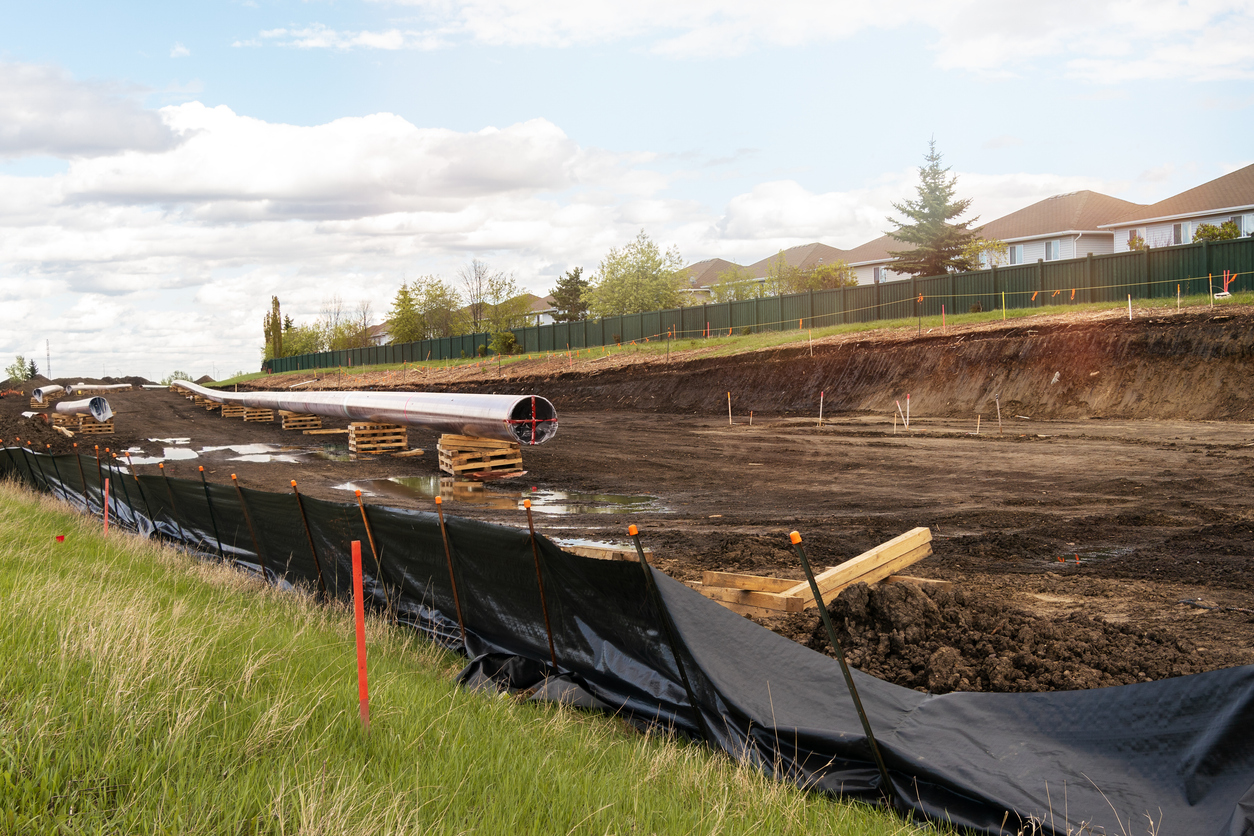New York State ignites protests by clearing way for its first major fossil fuel project in nearly a decade

If a new project to expand pumping stations along a 414-mile pipeline in New York State is completed, it will boost the flow of fracked natural gas into New York City, increase local air pollution, and raise the risk of pipeline accidents for communities along the route, environmental groups argue.
On Feb. 7, New York Gov. Kathy Hochul’s Department of Environmental Conservation issued permits to expand the capacity of two compressor stations that force methane through the 33-year-old Iroquois Pipeline, which carries fuel from the Canadian border through upstate New York, Connecticut, and Long Island to New York City.
The $272 million Iroquois Enhancement by Compression Project, which also includes expanding two compressor stations in Connecticut, would allow the Iroquois Pipeline to increase its capacity by about 125 million cubic feet of gas per day, or about 7 percent.
The announcement drew immediate ire from the state’s environmental community, which has been advocating to move the Democratic-majority state away from fossil fuels as a strategy to combat climate change.
Emily Skydel, Food & Water Watch’s Hudson Valley Organizer, said the approval marks the first major fossil fuel project in New York State since 2016.
“Gov. Hochul's decision will put more people in the hospital from exposure to toxic chemicals, and will accelerate the storms, fires, and droughts we are seeing due to climate change,” said Skydel. “Hochul is acquiescing to President Trump’s oil and gas agenda and putting more money into the pockets of wealthy billionaires at our expense, and raising ratepayer dollars to pay for it.”
In approving the air permits, New York’s Department of Public Service said the expansion is needed to ensure reliable and affordable gas service downstate on the coldest winter days.
“The issuance of the permits is based on a reliability need,” the state Department of Environmental Conservation wrote. An increased amount of fuel is needed in New York “despite any inconsistency with or interference with the attainment of the statewide greenhouse gas emission limits.”
Before it can move forward, the Iroquois Expansion by Compression Project still needs air permitting approval from the Connecticut Department of Energy and Environmental Protection for compressor station upgrades along the pipeline in Connecticut. These permit applications remain pending.
On Feb. 19, the Federal Energy Regulatory Commission (FERC) granted the developers of the Iroquois Pipeline project until March 25, 2027, to complete the construction of the new compressor stations.
In December 2023, more than 60 local and state elected officials sent a letter to Hochul imploring her to stop the Iroquois Pipeline Company’s proposal to increase the capacity of the compressor stations and expand the amount of fracked gas transported to New York City.
“This proposal poses an imminent threat to the health and well-being of our state and the communities we were elected to represent,” state Sen. Michelle Hinchey and the other officials wrote in the letter. “Compressor stations have a documented history of emitting cancer-causing chemicals, including elevated levels of nitrogen oxide (NOx), fine particulate matter, carbon monoxide, benzene, and formaldehyde.”
As part of the project, in Greene County, New York, the Athens Compressor Station expansion, and, in Dover County, the Dover Compression Station expansion would each add about 21 tons of criteria pollutants per year and 1,000 pounds of hazardous air pollutants per year to the atmosphere, permit documents.
As part of the approval, Iroquois Gas Transmission System LP, the company overseeing the project, agreed to invest $5 million to mitigate emissions and reduce environmental burdens within disadvantaged communities. The company plans to help fund the installation of heat pumps and EV charging stations in the communities along the route, the state DEC said.
Nivo Rovedo, the energy chair of the Mid-Hudson Group of the Sierra Club, said he believes the New York Department of Public Service over-relied on the developers’ flawed and self-serving conclusions in completing its analysis.
“The peak days count is overestimated to justify more gas, an ironic twist given that the climate change brought on by the gas burning and its leaky infrastructure is warming the winters, driving down the peak day count,” Rovedo said.
In addition to the air pollution, Rovedo said the project will harm the climate more broadly by encouraging the burning of more fossil fuels. He also said there is an added risk of explosions along the pipeline route. Neighbors will also have their quality of life harmed because compressors are noisy, and the larger compressors will be even louder.
In a May 1, 2024 statement of opposition to the Iroquois Pipeline Expansion Project sent to the New York State Public Service Commission, a Brooklyn-based climate advocacy group called Sane Energy said the project will double gas pressure on the aging pipeline by expanding compressor stations adjacent to elementary schools, disadvantaged communities, and family farms. The added pressure increases the risk of an explosion, the group warned.
The group also argued that the project is out of step with multiple local and state laws aimed at curbing the use of methane as a fuel and bringing down greenhouse gas emissions.
“Expanding a pipeline that must be retired to maintain safety is an incredibly irresponsible and expensive project,” the group said.
In lieu of relying on increased fossil fuel capacity to provide heat when demand rises, Sane Energy advocates thermal heat pumps and energy networks, which distribute heat from where it exists instead of combusting fuel. Moving heat more efficiently between buildings and infrastructure facilities, like subway tunnels and wastewater treatment plants, “eases the demand for electricity generation and transmission and smooths the peaks in electricity load during periods of extreme heat or cold, reducing the likelihood of blackouts,” according to the organization.
Lead photo: New York residents speak out against the Iroquois pipeline project. Photo by Sarah Kennedy, Mid-Hudson Group of the Sierra Club.















